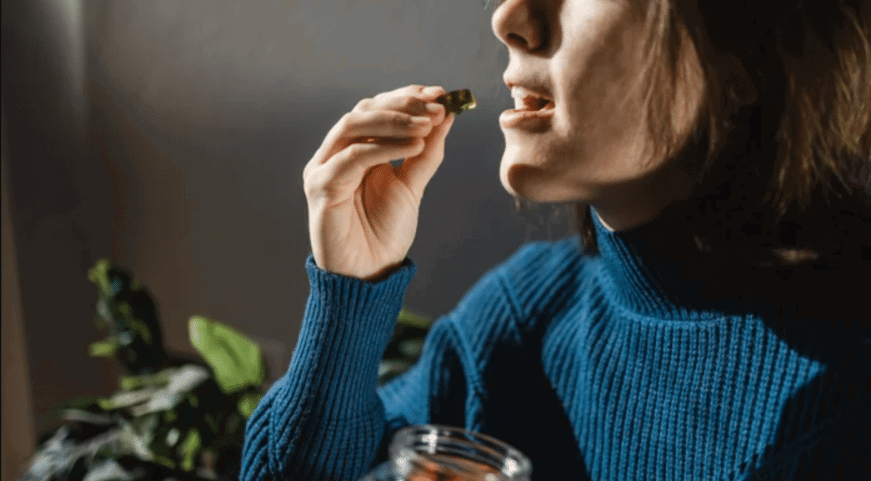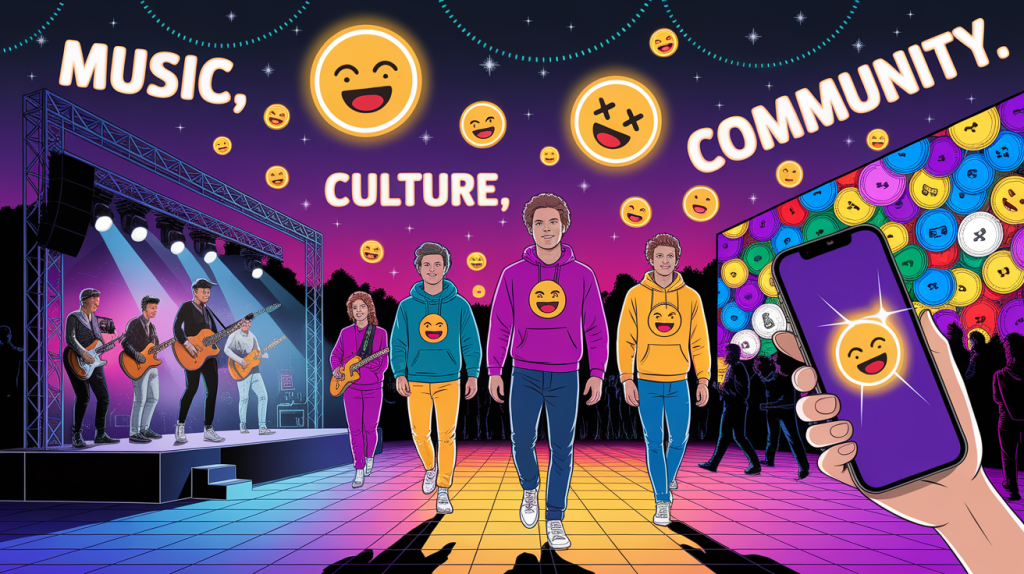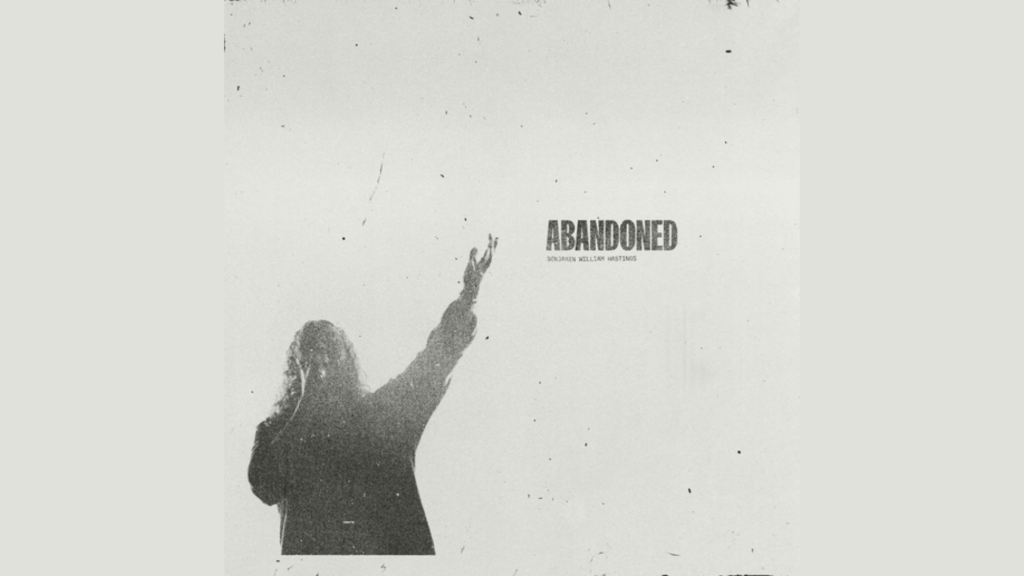In recent years, the popularity of cannabis-derived products, including THC gummies, has skyrocketed. Many individuals are turning to these products as natural alternatives to address various health concerns, including anxiety.
But can THC gummies help with anxiety? This article explores the science behind THC, the potential benefits and risks of using THC gummies for anxiety, and essential considerations for those considering this option.
Understanding THC and Its Effects
THC, or tetrahydrocannabinol, is one of the primary active compounds found in cannabis. It is best known for its psychoactive properties, which cause the “high” associated with marijuana use.
THC interacts with the endocannabinoid system (ECS) in the body, a complex network of receptors and neurotransmitters that play a crucial role in regulating mood, stress, pain, and other physiological processes.
How THC Affects Anxiety
THC interacts with CB1 receptors in the brain, which are responsible for mood regulation and stress response. When consumed in appropriate doses, THC may help reduce feelings of stress and promote relaxation. However, the effects of THC on anxiety are highly dose-dependent and can vary from person to person.
Potential Benefits of THC Gummies for Anxiety
THC gummies offer a discreet and convenient way to consume cannabis. Unlike smoking or vaping, gummies provide a smoke-free option, making them a preferred choice for individuals concerned about lung health. Here are some potential benefits of using THC gummies for anxiety:
1. Stress Reduction
Many users report feeling more relaxed and less stressed after consuming THC gummies. This may be due to the compound’s ability to activate the brain’s reward system and reduce the perception of stress.
2. Enhanced Mood
THC can trigger the release of dopamine, a neurotransmitter associated with pleasure and happiness. This can lead to an uplifted mood and a temporary alleviation of anxious feelings.
3. Improved Sleep
Anxiety often disrupts sleep patterns, leading to insomnia or restless nights. THC’s sedative effects may help individuals fall asleep faster and enjoy more restful sleep.
4. Long-lasting Effects
Gummies are digested and metabolized more slowly than other forms of THC consumption, such as smoking. As a result, the effects of THC gummies can last longer, providing extended relief from anxiety symptoms.
Risks and Considerations
While THC gummies may offer potential benefits for anxiety, they are not without risks. It’s important to be aware of the potential downsides and take precautions when using these products.
1. Psychoactive Effects
THC is a psychoactive compound, meaning it can alter perception, mood, and cognitive function. Some individuals may experience heightened anxiety or paranoia, especially when consuming high doses.
2. Dose Sensitivity
Finding the right dosage is crucial when using THC for anxiety. A dose that is too high can exacerbate anxiety symptoms rather than alleviate them. Start with a low dose and gradually increase as needed.
3. Legal and Regulatory Concerns
The legality of THC products varies by region. In some areas, THC gummies may be illegal or only available for medical use. Be sure to check local regulations before purchasing or using THC products.
4. Drug Interactions
THC can interact with certain medications, including antidepressants and anti-anxiety drugs. Consult with a healthcare professional before combining THC gummies with other medications.
5. Tolerance and Dependence
Regular use of THC can lead to tolerance, meaning higher doses are required to achieve the same effects. In some cases, this can also lead to dependence.
Scientific Research on THC and Anxiety
The scientific community has conducted numerous studies to explore the effects of THC on anxiety. While some studies suggest that low doses of THC can reduce anxiety, others indicate that higher doses may have the opposite effect.
Positive Findings
A study published in the Journal of Affective Disorders found that cannabis use led to a significant reduction in self-reported anxiety symptoms. However, the study also noted that the effects varied depending on the THC dosage and the individual’s prior experience with cannabis.
Mixed Results
Research published in the Frontiers in Psychology journal highlighted the biphasic effects of THC, where low doses reduce anxiety, but higher doses increase it. This underscores the importance of dose control when using THC for anxiety.
Limitations
Many studies on THC and anxiety are limited by small sample sizes and reliance on self-reported data. More extensive and well-controlled clinical trials are needed to draw definitive conclusions.
CBD vs. THC for Anxiety
Cannabidiol (CBD) is another compound found in cannabis that has gained attention for its potential anti-anxiety properties. Unlike THC, CBD is non-psychoactive and is generally considered to be safer for individuals with anxiety.
Why Choose CBD?
- Non-Psychoactive: CBD does not cause a “high.”
- Fewer Side Effects: CBD is less likely to cause paranoia or cognitive impairment.
- Complementary Effects: Some products combine CBD and THC to balance the effects and reduce the risk of anxiety.
THC-CBD Ratio
For individuals who are sensitive to THC, products with a balanced THC-CBD ratio may provide anxiety relief without the intense psychoactive effects. A common ratio is 1:1 (equal parts THC and CBD), but other ratios are available depending on the user’s needs.
Tips for Using THC Gummies for Anxiety
If you’re considering THC gummies to help with anxiety, here are some practical tips to ensure a safe and positive experience:
1. Start Low and Go Slow
Begin with a low dose, such as 2.5 mg to 5 mg of THC, and wait at least two hours before consuming more. This allows you to gauge your body’s response and avoid overconsumption.
2. Choose Quality Products
Look for reputable brands that provide third-party lab testing to ensure product quality, potency, and purity. Avoid products with artificial additives or contaminants.
3. Consider Full-Spectrum Gummies
Full-spectrum products contain a variety of cannabinoids and terpenes that work together to enhance the therapeutic effects of THC. This is known as the “entourage effect.”
4. Use in a Comfortable Environment
Consume THC gummies in a calm and familiar setting to reduce the risk of heightened anxiety. Surround yourself with supportive people if possible.
5. Monitor Your Response
Keep a journal to track your dosage, timing, and effects. This can help you identify patterns and determine the most effective approach for managing anxiety.
6. Consult a Healthcare Professional
If you have a history of anxiety or are taking medications, consult a healthcare professional before using THC gummies. They can provide personalized advice based on your medical history and needs.
Alternatives to THC Gummies for Anxiety
While THC gummies may be effective for some individuals, they are not the only option for managing anxiety. Here are some alternative approaches:
1. CBD Products
As mentioned earlier, CBD is a non-psychoactive compound with potential anti-anxiety benefits. CBD gummies, tinctures, and capsules are widely available.
2. Herbal Supplements
Herbs such as ashwagandha, valerian root, and passionflower have been used for centuries to promote relaxation and reduce anxiety.
3. Mindfulness and Meditation
Practicing mindfulness and meditation can help reduce stress and anxiety by promoting a sense of calm and awareness.
4. Exercise
Regular physical activity releases endorphins, which can improve mood and reduce anxiety symptoms.
5. Therapy
Cognitive-behavioral therapy (CBT) and other forms of psychotherapy can help individuals develop coping strategies for anxiety.
Conclusion
THC gummies have the potential to help with anxiety, but their effects can vary depending on the individual, dosage, and other factors. While some people may find relief from anxiety symptoms with low doses of THC, others may experience heightened anxiety or other side effects. As with any supplement or medication, it’s essential to approach THC gummies with caution, start with a low dose, and consult a healthcare professional if needed.
For those who are new to cannabis or have a history of anxiety, CBD or other non-psychoactive alternatives may be a safer starting point. By understanding the potential benefits and risks, individuals can make informed decisions and find the best approach to managing their anxiety.





















